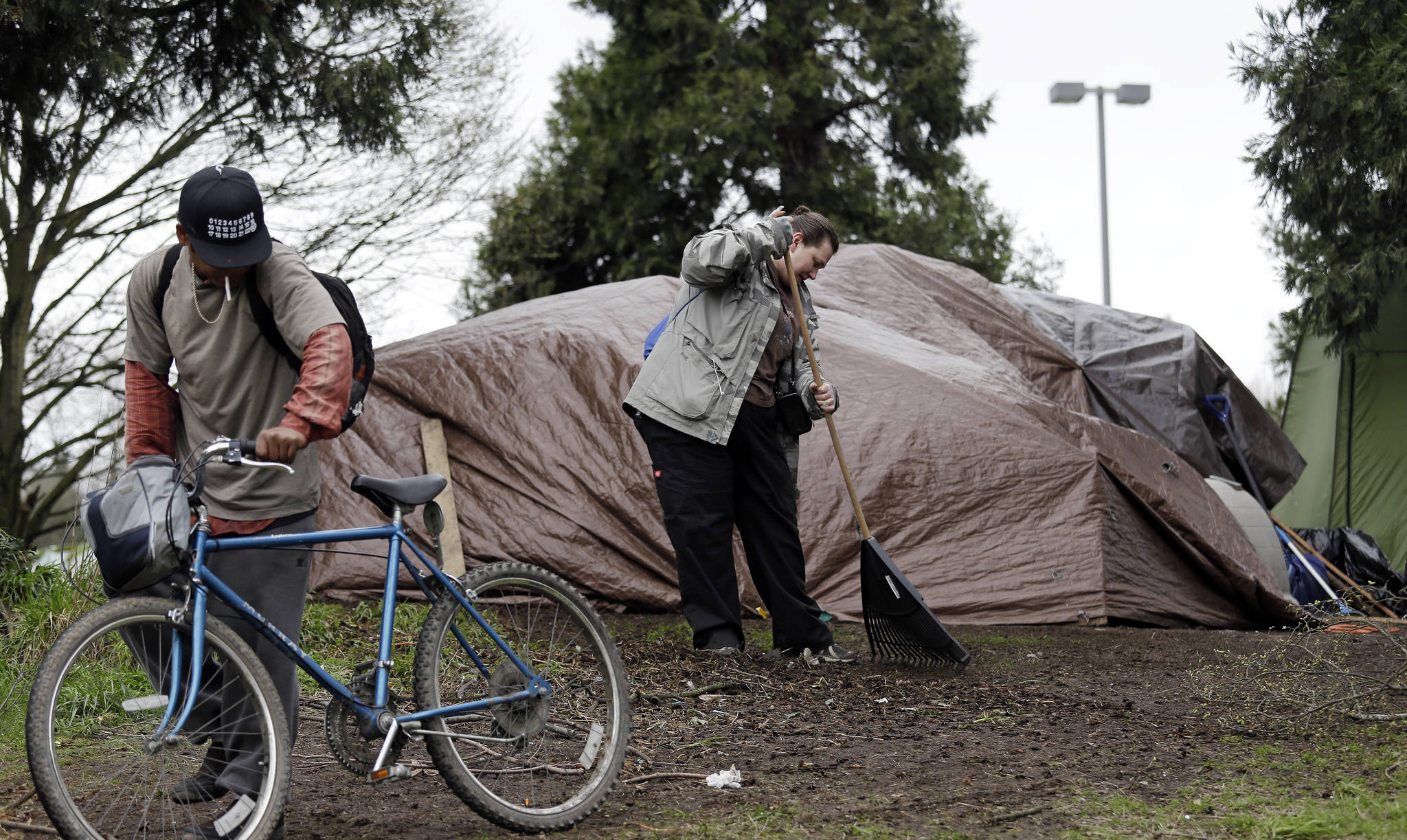By Phuong Le
The Associated Press
SEATTLE — Sixteen months after he declared a state of emergency on homelessness, Seattle’s mayor is asking voters in this liberal, affluent city for $55 million a year in new taxes to fight the problem.
Some are pushing back, saying the city already spends millions to combat homelessness, and things appear to have gotten worse, not better.
In making his case, Mayor Ed Murray says the problem has grown exponentially and federal and state help is unlikely. He wants voters to support a proposed ballot initiative that would increase property taxes to raise $275 million over five years for homeless services — almost doubling what Seattle spends each year.
Supporters say current resources haven’t been enough to stem the rising tide of people on the streets, and the proposed levy will provide more housing for those who need it most.
“This is a city that’s not going to wait for a dysfunctional federal government to show up and do something — because lives are being lost,” Murray said at a recent news conference.
The mayor, who is up for re-election, would be on the same ballot as the tax initiative if backers gather enough signatures to qualify it for the August election.
City voters have approved three property tax increases in as many years to pay for affordable housing, preschools and buses, on top of other taxes, and some say the higher bills are pricing out working- and middle-class families. Others are demanding accountability.
The mayor “needs to make these reforms first and then come to the taxpayers,” said Harley Lever, founder of a group called Safe Seattle, which helped form one of two campaigns opposing Initiative 126.
The city should spend money more efficiently and adopt the data-driven, performance-based approach that places such as Houston and Boston have used to successfully reduce homelessness, Lever said.
“Seattle citizens are very generous. They’ve done their part,” he added.
While homelessness has decreased nationwide and in many cities, the problem has grown in others, such as Seattle. In 2016, a one-night homeless count found nearly 3,000 people living outside in this city of about 650,000, marking the fourth straight year of increases.
Daniel Malone, executive director of the nonprofit Downtown Emergency Services, blames rising rents and low vacancy rates for the spike.
“As rents have skyrocketed, more and more people have fallen into homelessness, and it’s harder for people to scratch their way out,” he said.
Since declaring a civil emergency on homelessness in November 2015, Murray expanded shelter beds, authorized new encampments and hired a homelessness czar, a $135,000 cabinet-level position.
Last fall, following two consultant reports that said the city needed to revamp its approach, the mayor announced a shift to focusing on moving people into long-term housing, among other changes.
Communities such as Houston, Las Vegas and New Orleans have made the greatest reductions in homelessness by acting urgently, focusing relentlessly on housing placement, using data to drive funding and creating a person-centered response, one report noted.
City officials say they’re making improvements in line with recommendations in those reports.
Under the new strategy called Pathways Home, Seattle is focusing on getting people into long-term housing. This summer, for the first time in a decade, city homeless contracts will be up for competitive rebidding, and programs that get money will have to show they move people into housing.
While Seattle has numerous homeless programs, the mayor and others conceded it has not supported a coordinated system. In 2015, city money was spread across 183 contracts and 60 agencies.
Working through list
City officials also have started working through a list of names to figure out how to get individuals into housing. Last month, Murray launched trained teams of outreach workers and police officers that go out and connect people to services. The city also plans a 24-hour shelter and service center open to all, even those struggling with addiction.
“It probably feels very slow to our community and the public, but I remind folks that we’re making a pretty significant system shift,” said Catherine Lester, who directs the city’s Human Services Department.
She said 1,300 people were helped out of homelessness last year.
But Lever said the city needs to demonstrate its reforms work before asking taxpayers for more.
Others were irked that a millionaire who doesn’t live in the city, venture capitalist Nick Hanauer, brought the initiative proposal to the mayor. Hanauer lives in Shoreline, just north of Seattle, and has been prominent in backing liberal causes in the state.
Murray’s proposal would raise property taxes by 27 cents for every $1,000 in assessed value. That means about $163 a year for a $604,000 home, the median price in Seattle, according to the real estate data firm Zillow. Commercial property taxes would account for about 40 percent.
About 70 percent of the money would go to a range of rental subsidies, while other money would expand addiction and mental health treatment and add more trained outreach teams. An independent panel would monitor the work.
Barbara Poppe, a national housing expert hired by the city as a consultant, said programs to be funded by the initiative align with recommendations in her August report and that the city generally appears to be on track.
Asked whether the city needed more resources, she said the number of homeless people has increased since data in her report.
“You’re going to need more resources if you’re having people experience more homelessness,” she added.

